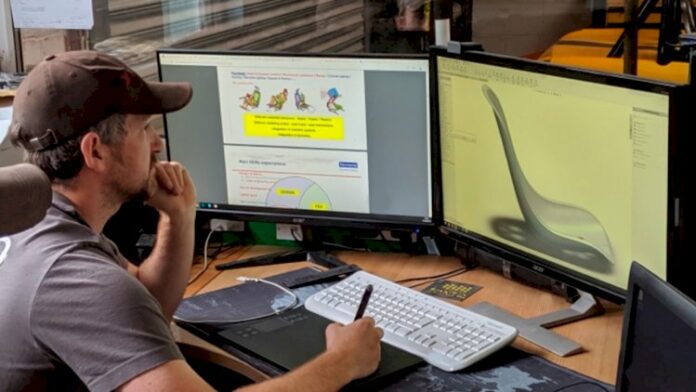A Cornish company is planning to revolutionise the way in which marine craft racing seats are designed and manufactured, thanks to support from Marine-i.
Based in St Austell, Cornwall, Toniq Composites designs and manufactures a range of bespoke and standard products using advanced composite materials. When they hit upon a breakthrough idea for the marine sector, they applied for support from the Marine-i project.
Part funded by the European Regional Development Fund, Marine-i is designed to help the marine tech sector in Cornwall & Isles of Scilly grow through harnessing the full potential of research and innovation.
Colin Williams, CEO of Toniq Composites, explains their new concept:
“Many marine craft racing seats are prone to breaking in extreme conditions, when they have been made using conventional methods. Our advanced design and construction techniques can produce a seat that will overcome these problems. Also, unlike sectors such as automotive, there is currently no set of compliance criteria for racing seats in the marine industry. We want to help define new standards in this sector.”
The approach used by Toniq Composites also has important environmental benefits. Colin Williams says:
“There are two points. First, our advanced vacuum infusion process is less hazardous to health for those working on these products and generates less waste material. Secondly, we want to assess the possibility of introducing sustainable, organic materials into our composites, which could be used in place of glass fibre or carbon fibre.”
Matt Hodson, Marine Hub Operations Director for Cornwall Development Company and a partner in the Marine-i project says:
“This innovation ticks a lot of boxes for our team. It would have immediate potential in the domestic market for marine craft but, longer term, could reach a massive worldwide market. This would create important new opportunities for Cornwall’s marine supply chain. As well as being a brilliant application of composite manufacturing techniques, it would also have a significant environmental impact for the industry – something we are very keen to support.”
Colin Williams adds:
“We are delighted to receive this grant from Marine-i. It will enable us to purchase the advanced CAD and IT hardware that we need to carry out rendering of the designs and to complete our critical Finite Element Analysis. In addition, Marine-i partners such as University of Plymouth will be helping us with the research expertise that we need to successfully develop this exciting new process.”



